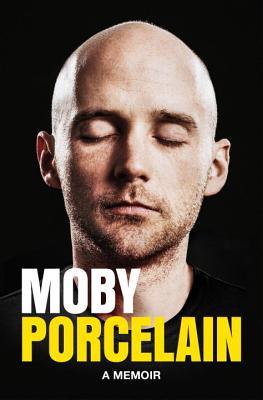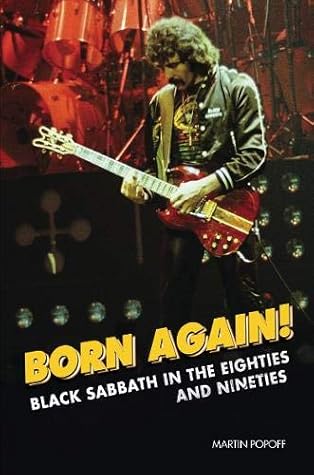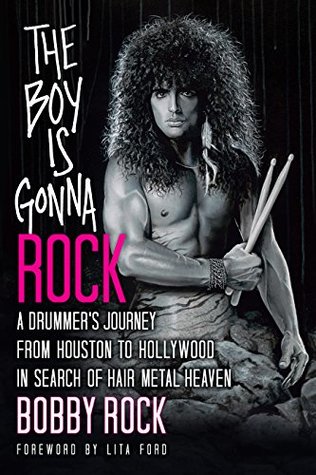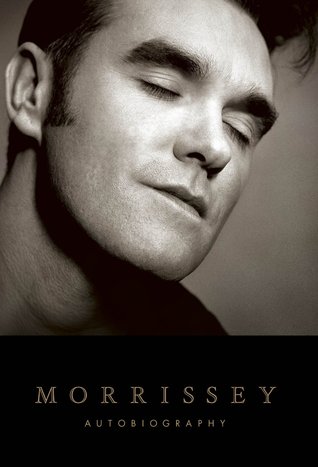Chuck Klosterman is Terrible at Recommending Books...Here Are His Picks
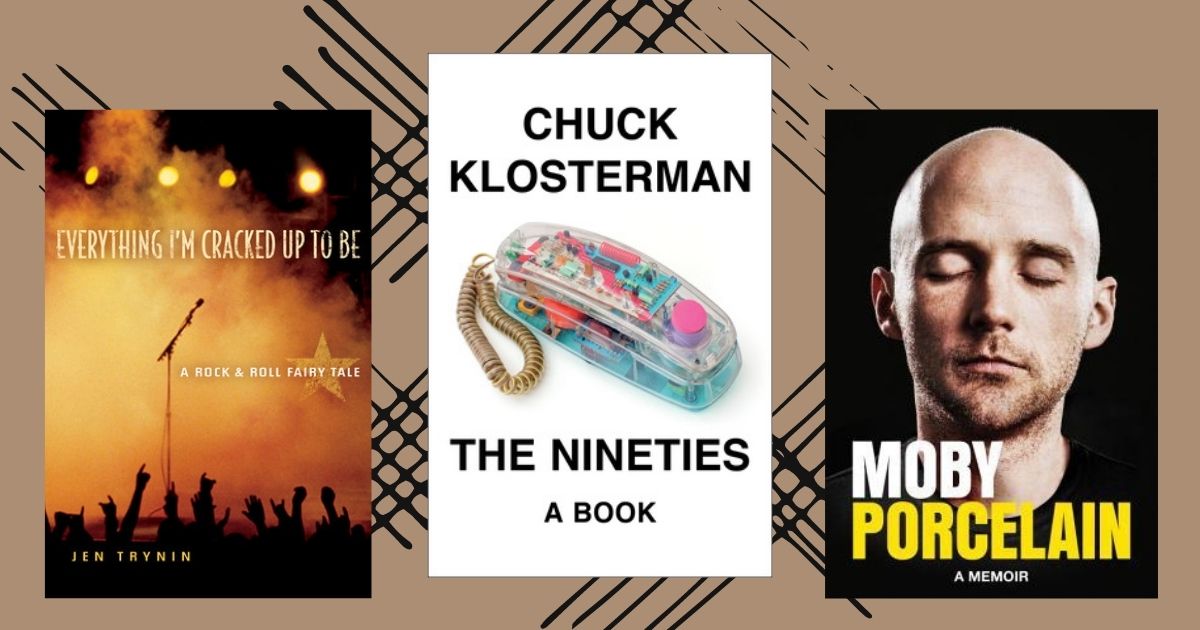
Chuck Klosterman (Sex, Drugs, and Cocoa Puffs: A Low Culture Manifesto) is known for his witty, insightful essays. In his new book, The Nineties, he takes aim at the decade of grunge, turning his particular eye toward the time's film, music, sports, TV, politics, the changes regarding race and class and sexuality, and, obviously, the yin/yang of Oprah and Alan Greenspan.
So, of course, we wanted to know what he'd recommend for some '90s reading. His response was, well, Klostermanian. Oh, and The Nineties is available in the U.S. on February 8.
So, of course, we wanted to know what he'd recommend for some '90s reading. His response was, well, Klostermanian. Oh, and The Nineties is available in the U.S. on February 8.
If you’re reading this (and I’m not sure what’s happening here if you’re not), my assumption is that you are looking for book recommendations. If so, I have some bad news: I’m terrible at recommending books to people.
This is because I read books incorrectly. And while I’m not totally sure there’s a correct way to read books, I’m confident that–if there is–it has almost no relationship to the way I do it.
The process of recommending books to strangers should be simple. It seems like I should just be able to write, “I read ______ and liked it, and I suspect you will like it, too.” But somehow, this is just impossible for me, particularly with fiction.
Very often, contemporary novels receiving excellent reviews strike me as unusually bad (either overwritten or inauthentic, or both). This makes me wonder if I might actually be better off telling strangers to read a book I don’t like. I also find that the novels I enjoy most tend to make me both depressed and self-consciously amused, which is not an emotional state I aspire to inflict upon others unless I am being paid to do so.
I’m a little better with nonfiction, although just barely. When I read nonfiction as a younger person, I was obsessed with the construction and sophistication of the prose. Now I read nonfiction like I’m fracking for petroleum. All I want is the information, delivered as accurately and straightforwardly as possible. I increasingly believe the best writing is the kind of writing the reader barely notices. Talent can be a distraction. But here again–this does not seem like good criterion for making a recommendation to someone else.
My opinions on art, like most opinions on art, are arguably worthless. Yet here I am, expressing them anyway: Because I’m publishing a book titled The Nineties, I have been granted an opportunity to recommend a collection of books that should (at least in theory) reflect the content of the book I am trying to sell. I could (and probably should) just list a bunch of the books I used as research material while I was writing The Nineties. But I’m not gong to do that.
Instead, I’m going to list a handful of inessential nonfiction books that glancingly mention the 1990s as a relatively bad period within the author’s life. This, I realize, is not the savviest way to promote a book about how the 1990s were fascinating. But promoting things poorly on purpose was part of what made the nineties charming.
When I read purely for pleasure, I tend to read books about rock music. These are typically memoirs from the artists themselves, sometimes written with the sledgehammer nuance of a person talking about themselves into a tape recorder. These are not necessarily “good books,” at least by the traditional definition of what makes a book “good.” Very often, the authors are figures who struggled during the nineties and had to reconcile how this fallow period intertwined with the rest of their amazing life. These struggles, to me, are far more compelling than the stories of their success.
This is because I read books incorrectly. And while I’m not totally sure there’s a correct way to read books, I’m confident that–if there is–it has almost no relationship to the way I do it.
The process of recommending books to strangers should be simple. It seems like I should just be able to write, “I read ______ and liked it, and I suspect you will like it, too.” But somehow, this is just impossible for me, particularly with fiction.
Very often, contemporary novels receiving excellent reviews strike me as unusually bad (either overwritten or inauthentic, or both). This makes me wonder if I might actually be better off telling strangers to read a book I don’t like. I also find that the novels I enjoy most tend to make me both depressed and self-consciously amused, which is not an emotional state I aspire to inflict upon others unless I am being paid to do so.
I’m a little better with nonfiction, although just barely. When I read nonfiction as a younger person, I was obsessed with the construction and sophistication of the prose. Now I read nonfiction like I’m fracking for petroleum. All I want is the information, delivered as accurately and straightforwardly as possible. I increasingly believe the best writing is the kind of writing the reader barely notices. Talent can be a distraction. But here again–this does not seem like good criterion for making a recommendation to someone else.
My opinions on art, like most opinions on art, are arguably worthless. Yet here I am, expressing them anyway: Because I’m publishing a book titled The Nineties, I have been granted an opportunity to recommend a collection of books that should (at least in theory) reflect the content of the book I am trying to sell. I could (and probably should) just list a bunch of the books I used as research material while I was writing The Nineties. But I’m not gong to do that.
Instead, I’m going to list a handful of inessential nonfiction books that glancingly mention the 1990s as a relatively bad period within the author’s life. This, I realize, is not the savviest way to promote a book about how the 1990s were fascinating. But promoting things poorly on purpose was part of what made the nineties charming.
When I read purely for pleasure, I tend to read books about rock music. These are typically memoirs from the artists themselves, sometimes written with the sledgehammer nuance of a person talking about themselves into a tape recorder. These are not necessarily “good books,” at least by the traditional definition of what makes a book “good.” Very often, the authors are figures who struggled during the nineties and had to reconcile how this fallow period intertwined with the rest of their amazing life. These struggles, to me, are far more compelling than the stories of their success.
Love has a bad reputation and spends a lot of this book trying to re-frame the Beach Boys history by shifting the focus away from Brian Wilson and toward the notion that the group was less an extension of a singular genius and more of a collective desire to provide populist entertainment to anyone who wanted it. The chapter on the nineties are brief, but they include some interesting details on a lawsuit the band filed against Wilson and the band’s attempt at making a 1996 country record in Nashville that never came out.
This book starts in 1993, at Bill Clinton's inauguration. The author also contributed to two books about the “murder” of Kurt Cobain, so you can probably guess which details of Jackson’s life he is most interested in.
This is the first of two memoirs by electronic artist Moby. The second was harshly criticized and reflected quite badly on the musician, but this first book–which covers his bleak life prior to becoming famous in 1999–is candid and surprisingly excellent.
It’s bizarre that this book even exists. Imagine someone writing a book about the cultural impact of Michael Jordan, but only focusing on the two seasons he played with the Washington Wizards.
So here’s a memoir written by the drummer from Vinnie Vincent Invasion and Slaughter. If Born Again is the equivalent of a music book about Michael Jordan tenure with the Wizards, this is the equivalent of a music book about the career of Popeye Jones. But Rock is quite unorthodox, and some of the details are so weird that they just have to be true.
A memoir about the best time in Trynin’s alt-pop nineties career, which actually seemed not so great. But this is a very good book for anyone specifically interested in pop music’s relationship to contract law.
There was a time in my life when I could have never imagined saying the phrase, “You know, the malcontent guitarist from Toto has some pretty entertaining insights about the culture of music.” Yet this is what I said to people after reading this book on an airplane.
This one is much better written than most books penned by musicians, which is not surprising. It also contains an interminably long, endlessly mean-spirited section about a 1996 lawsuit filed against Morrisey by the drummer of the Smiths, which also isn’t surprising.
This is a book that’s mostly about living a metal life in the 1980s. But then the 1990s happen, and the author was forced to keep living. It’s also the rare example of a memoir where the writer casually confessed that he committed some pretty serious crimes and totally got away with it.
OK, you get the vibe. What books would you recommend? Share them with us in the comments below!
Check out more recent articles:
Narrative Nonfiction Picks for Compelling True Stories
Hot and Fresh: 57 Highly Anticipated Debut Novels
Readers' Most Anticipated Speculative Fiction of 2022
Check out more recent articles:
Narrative Nonfiction Picks for Compelling True Stories
Hot and Fresh: 57 Highly Anticipated Debut Novels
Readers' Most Anticipated Speculative Fiction of 2022
Comments Showing 1-12 of 12 (12 new)
date newest »
newest »
 newest »
newest »
message 1:
by
Andy
(new)
Feb 01, 2022 10:40AM
 Nöthin' But a Good Time: The Uncensored History of the '80s Hard Rock Explosion by Richard Bienstock and Tom Beaujour
Nöthin' But a Good Time: The Uncensored History of the '80s Hard Rock Explosion by Richard Bienstock and Tom Beaujour
flag
 Trainspotting - Irvine Welsh. Scaggy as all get up. The voice of punk, grown up, grown wiser and grown eloquent. That's what the Sunday Times said. Plus it has The Pogues.
Trainspotting - Irvine Welsh. Scaggy as all get up. The voice of punk, grown up, grown wiser and grown eloquent. That's what the Sunday Times said. Plus it has The Pogues.
 Buffy Sainte-Marie: The Authorized Biography
Buffy Sainte-Marie: The Authorized BiographyToo bad you couldn't recommend just one woman. I saw you at the book festival in Tucson years ago, and have thoroughly enjoyed a couple of your books. Downtown Owl is my favourite. At the time, I remember you being quite disparaging of memoirs, but my memory could be faulty.
 Books to read:
Books to read:Light And Shade: Conversations with Jimmy Page - Brad Tolinski (my favorite in this list)
The Real Frank Zappa - Frank Zappa
My Life - Keith Richards
Boys In Trees - Carly Simon (audio book is best)
Clapton - Eric Clapton
Autobiography - Morrissey (I agree with Mr. Klosterman on this one)
There Will Be Rainbows: A Biography Of Rufus Wainwright - Kirk Lane
Rocks: My Life In And Out of Aerosmith - Joe Perry
Broken Horses - Brandi Carlile
Meh -
Not Dead & Not For Sale - Scott Weiland (at least it's an autobiography)
Rod: The Autobiography - Rod Stewart
Break Shot: My First 21 Years - James Taylor
The Habit Of Noticing - Darden Smith (but the intro by Warren Zanes is one of the best things ever written about music)
Jimmy Page - Jimmy Page
Books to avoid:
Does the Noise in My Head Bother You?: A Rock 'n' Roll Memoir - Steven Tyler
James Taylor Long Ago and Far Away: His Life and His Music - Timothy White
Room Full Of Mirrors: A Biography Of Jimi Hendrix -- Charles R Cross
I'm With The Band - Pamela Des Barnes
 Ginny wrote: "Buffy Sainte-Marie: The Authorized Biography
Ginny wrote: "Buffy Sainte-Marie: The Authorized BiographyToo bad you couldn't recommend just one woman. I saw you at the book festival in Tucson years ago, and have thoroughly enjoyed a couple..."
Not to pick nits, but Jen Trynin is a woman. He recommended her book, "Everything I'm Cracked up to Be." And I'll go ahead and recommend her excellent album, "Gun Shy, Trigger Happy."
 David wrote: "Not to pick nits, but Jen Trynin is a woman...."
David wrote: "Not to pick nits, but Jen Trynin is a woman...."Thanks. I suppose I saw what I expected to see. I will check her out.
 Suzanne wrote: "Trainspotting - Irvine Welsh. Scaggy as all get up. The voice of punk, grown up, grown wiser and grown eloquent. That's what the Sunday Times said. Plus it has The Pogues."
Suzanne wrote: "Trainspotting - Irvine Welsh. Scaggy as all get up. The voice of punk, grown up, grown wiser and grown eloquent. That's what the Sunday Times said. Plus it has The Pogues."Eighties not the Nineties. I used to work in the same building as the author, we often caught the bus to work on Leith Walk togehter outside the former train station which gave rise to the book's title




